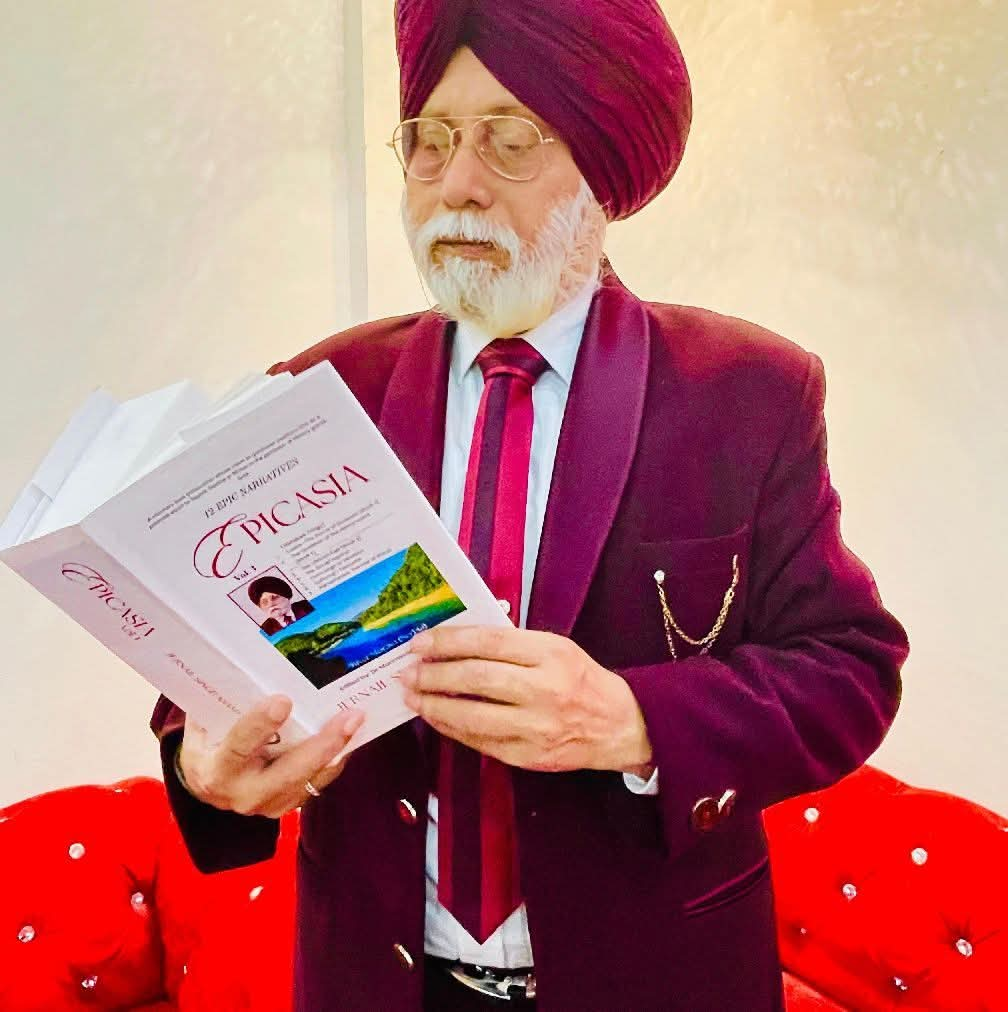
PSYCHOLOGICAL ANALYSIS OF THE EMOTIONAL STATE OF CHILDREN FROM DIVORCED FAMILIES
Turon University
Department of Psychology
3rd-year Student
Nurboboyeva Dilshoda Nodir qizi
ABSTRACT
This article provides a psychological analysis of the emotional states observed in children from divorced families. During the divorce process, children often experience various emotional reactions such as grief, fear, anger, anxiety, and difficulties in social relationships. The article examines age-related differences in these reactions, including low self-esteem, changes in parental interactions, deficiencies in personal coping mechanisms, and failures in social relationships. Additionally, the study explores methods of psychological adaptation and stress management for children through parental involvement and professional psychological support. The findings indicate that appropriate psychological approaches help enhance children’s emotional stability and contribute to the formation of healthy social relationships in the future.
KEYWORDS
Divorce, children, emotional state, psychological analysis, mental health, parents, stress management.
INTRODUCTION
A stable family environment plays a crucial role in every child’s emotional and psychological development. However, the process of divorce fundamentally alters the family system and introduces significant stress and emotional difficulties into children’s lives. Research shows that children from divorced families often experience various psychological reactions, including grief, fear, anger, anxiety, and difficulties in social interactions.
These reactions vary depending on the child’s age. Younger children tend to experience anxiety and uncertainty, middle school-aged children often face social difficulties and low self-esteem, while older children may struggle with personal conflicts and stress-related behaviors. In addition, changes in parental relationships, lack of family support, and negative environmental factors significantly affect children’s psychological stability.
This article aims to psychologically analyze the emotional states of children from divorced families, identify age-specific psychological characteristics, and explore ways to improve stress management and emotional adaptation. The findings demonstrate that proper psychological approaches enhance emotional stability and support the development of healthy social relationships.
RESEARCH OBJECTIVE AND JUSTIFICATION
The main objective of this study is to conduct an in-depth psychological analysis of the emotional states experienced by children from divorced families, identifying their emotional reactions, sensitivity to stress, and social and psychological adaptation characteristics. The research seeks to determine how the divorce process affects children’s mental well-being, examine age- and gender-related differences in these effects, and identify effective directions for psychological support.
Modern psychological research indicates that family separation significantly impacts children’s psychological development, leading to increased difficulties in the following areas:
1. Emotional Uncertainty and Grief
Children from divorced families often experience heightened anxiety, grief, and feelings of loneliness due to parental conflict, tension during the divorce process, and changes in family relationships.
In younger children, these emotions primarily manifest as anxiety and sadness.
In middle school-aged children, depressive moods, low self-esteem, and loneliness are more common.
In older children, emotional struggles and internal conflicts are frequently observed.
2. Difficulties in Social Adaptation
Children may experience challenges in communicating with peers, classmates, and teachers. Family-related stress and uncertainty can cause social withdrawal or increased irritability, negatively affecting academic performance and social success.
3. Stress and Behavioral Changes
When experiencing psychological discomfort, children develop various stress-coping mechanisms, such as displaying anger, withdrawing into sadness, or engaging in attention-seeking behaviors. These behaviors directly affect psychological stability and require continuous support throughout development.
4. Age- and Gender-Specific Differences
Younger children often struggle to verbalize their emotions, leading stress and grief to manifest through behavior. Middle school-aged children commonly exhibit depressive symptoms and low self-esteem, negatively affecting school performance and social adjustment. Older children may face internal conflicts, emotional struggles, and difficulties in independent decision-making.
5. Necessity of Psychological Support
The research findings provide parents, educators, and psychologists with practical recommendations for improving children’s emotional well-being. Such support enhances emotional stability, improves social adaptation, and reduces the negative impact of divorce.
Thus, the psychological analysis of emotional states in children from divorced families holds not only scientific but also practical significance. It enables the identification of developmental challenges, analysis of age- and gender-specific characteristics, and formulation of strategies to reduce stress and emotional discomfort.
DESCRIPTION OF THE SCIENTIFIC PROBLEM AND ITS SOLUTION
In contemporary society, the increasing rate of family divorce has become a pressing social and psychological issue. Emotional changes in children from divorced families negatively affect not only their personal development but also their social adaptation. Psychological studies indicate that children’s emotional well-being is influenced by several factors:
1. Changes in Parental Relationships
Parental separation affects children’s worldview, sense of security, and trust. Some children experience heightened anxiety and depression, while others develop emotional withdrawal.
2. Emotional and Psychological Stress
Divorce serves as a major source of stress for children. The duration and intensity of stress depend on the child’s age, gender, and the circumstances of the divorce.
3. Social and School Environment Challenges
Children may face difficulties interacting with classmates, withdraw socially, or become passive. In some cases, anger and aggressive behavior emerge, negatively affecting social integration.
4. Decreased Psychological Resilience
Divorce negatively influences children’s emotional responses, behavior regulation, and stress tolerance, potentially leading to long-term consequences for mental health and personal development.
A key scientific problem lies in the lack of systematic and evidence-based approaches to analyzing the emotional states of children from divorced families. Many existing studies are limited to individual cases or lack statistical generalization, highlighting the need for comprehensive and in-depth psychological analysis.
WAYS TO ADDRESS THE SCIENTIFIC PROBLEM
1. Psychological Assessment and Monitoring
Specialized tests, observational methods, and interviews are used to assess children’s emotional states, including stress, grief, anger, anxiety, and social adaptation. Diagnostic approaches are tailored to age and gender differences.
2. Consideration of Age and Individual Characteristics
Children respond emotionally in different ways depending on their developmental stage. Younger children may not understand divorce and experience intense anxiety, while older children may feel loneliness or emotional isolation. This approach is essential for individualized psychological support.
3. Development of Social and Psychological Support Programs
Based on research findings, individual and group counseling sessions, psychological training, and therapy programs can be implemented to enhance emotional stability, self-regulation, and social adaptation.
4. Recommendations for Parents and Educators
Parents and educators should better understand children’s emotional states and apply supportive strategies such as regular communication, emotional support, positive reinforcement, and stress-reducing activities.
5. Generalization of Scientific and Practical Findings
Research outcomes can be used to develop academic articles, methodological guidelines, and practical recommendations, systematizing psychological approaches for working with children from divorced families.
Studying the emotional states of children from divorced families and establishing psychological support systems is a crucial scientific and practical task. The results contribute to improving emotional resilience, reducing stress, enhancing social adaptation, and mitigating the negative impact of family separation.
CONCLUSION
Psychological analysis of the emotional states of children from divorced families is a highly relevant and important issue. Family separation significantly affects children’s emotional and psychological development. Research indicates that children from divorced families frequently experience anxiety, grief, anger, and emotional withdrawal, and in some cases exhibit social aggression.
Age and individual characteristics play a critical role in this process. Younger children may experience greater stress due to limited understanding of divorce, while older children often face loneliness, emotional isolation, and academic difficulties. Therefore, psychological interventions must be tailored to individual needs.
The findings show that psychological training, group activities, and individual counseling are effective in supporting children, while parental and educator involvement significantly enhances emotional stability. This study holds both scientific and practical value, offering a systematic framework for psychological support and intervention.
Overall, the research highlights the importance of analyzing emotional states, providing targeted support, and developing appropriate psychological programs to ensure healthy emotional and social development. It contributes to reducing the negative psychological effects of divorce, improving stress management, and promoting social adaptation in children from divorced families.
REFERENCES
Ahmadaliev, S. (2018). Child Psychology and Family Influence. Tashkent: Fan va Tekhnika.
Boboev, R. (2016). Family Divorce and Emotional Development of Children. Tashkent: Yoshlar Publishing House.
Kaplan, H., Sadock, B. (2012). Psychiatry and Psychology. Moscow: Mir.
Petrova, E. V. (2015). Children in Divorce: Psychological Consequences. Saint Petersburg: Piter.
Amato, P. R. (2000). The consequences of divorce for adults and children. Journal of Marriage and Family, 62(4), 1269–1287.
Kelly, J. B., Emery, R. E. (2003). Children’s adjustment following divorce: Risk and resilience perspectives. Family Relations, 52(4), 352–362.
Sun, Y., Li, Y. (2009). Effects of family structure and parental involvement on children’s well-being. Social Indicators Research, 94(1), 105–120.
Cherlin, A. J. (2009). The Marriage-Go-Round: The State of Marriage and the Family in America Today. New York: Alfred A. Knopf.
Mamedova, G. (2017). Psychological Support for Children from Single-Parent Families. Baku: Elm.
Johnson, R. (2010). Children of Divorced Families: Emotional and Social Adjustment. London: Routledge.







 THE CLOSING VOW
THE CLOSING VOW